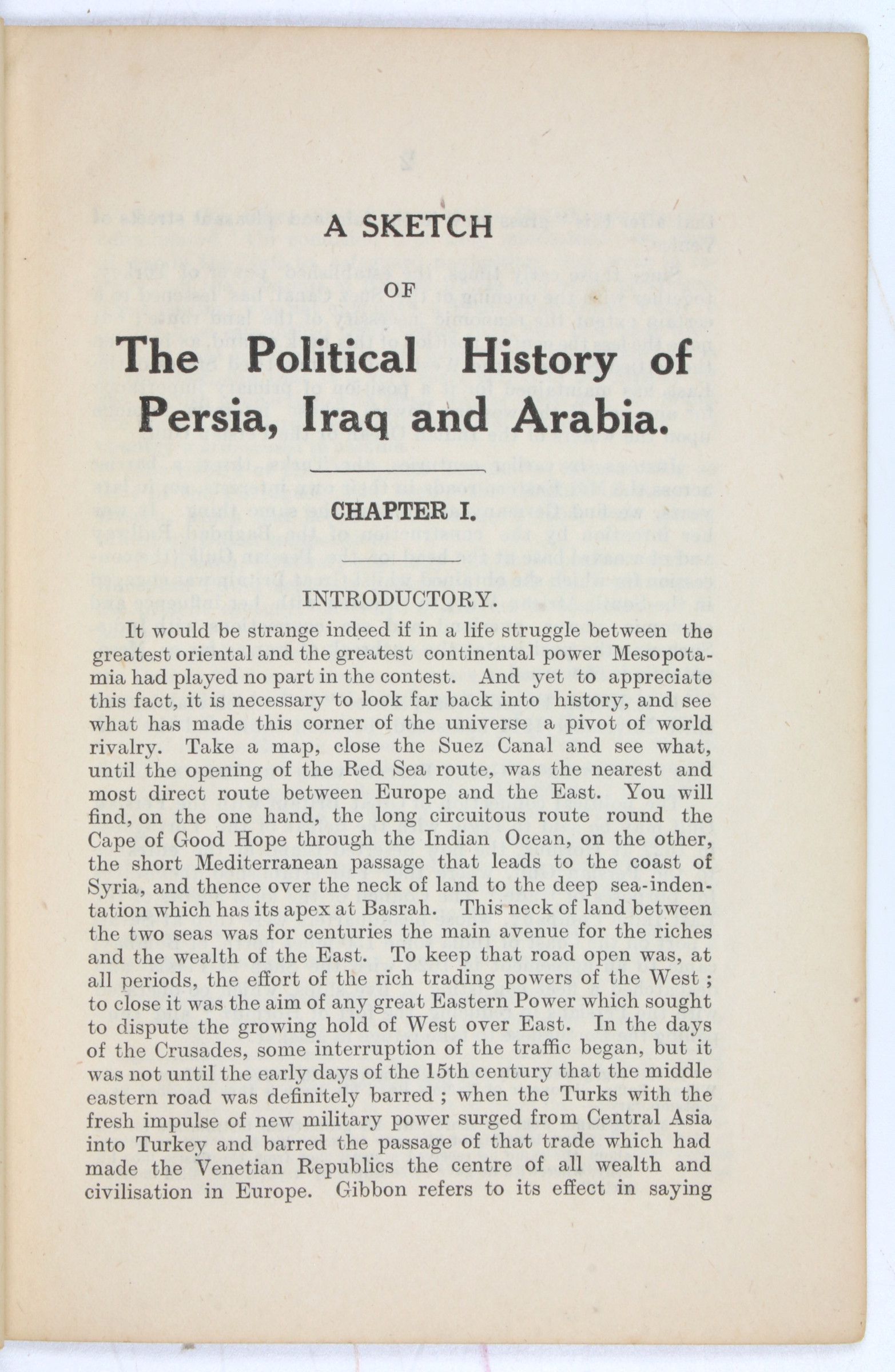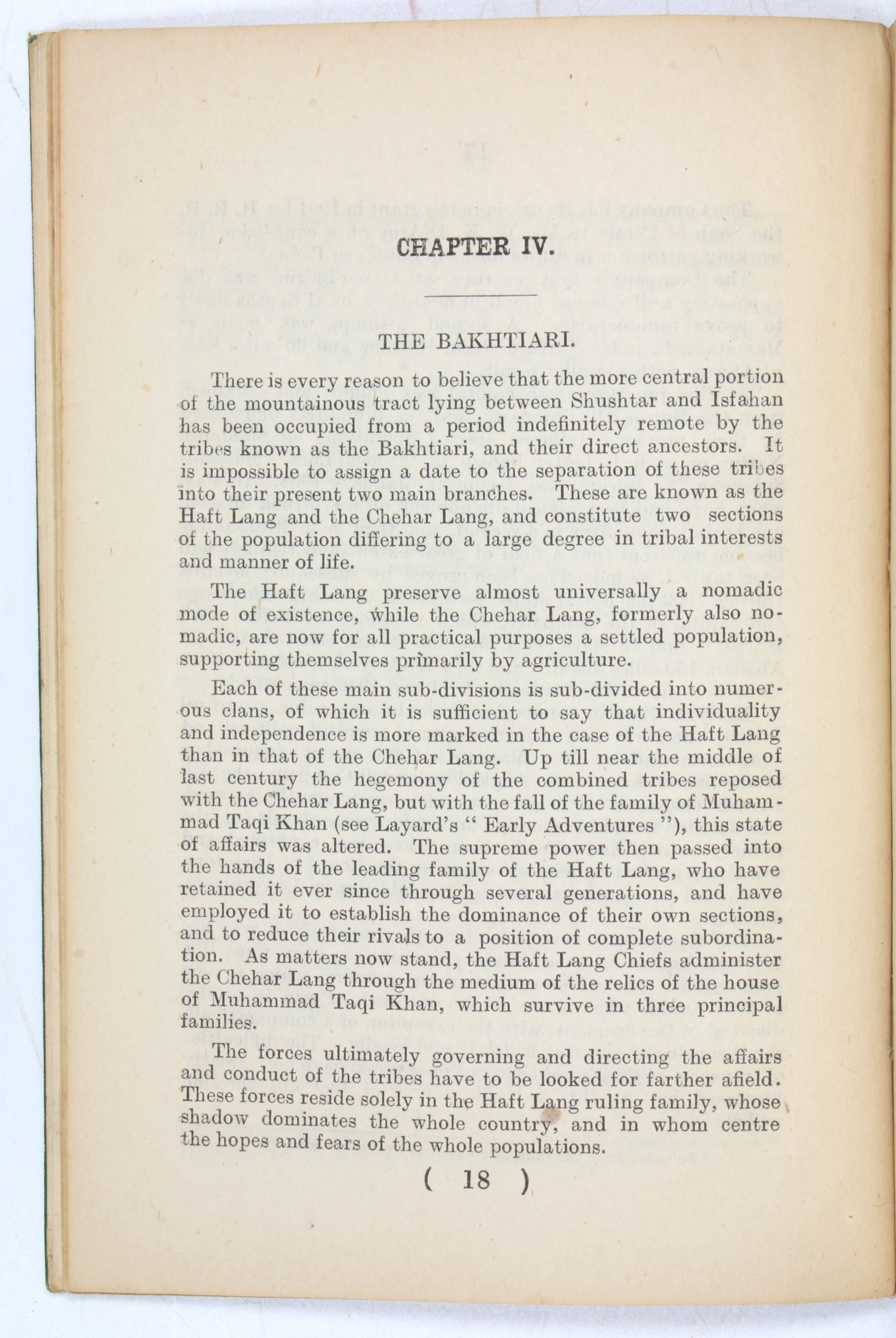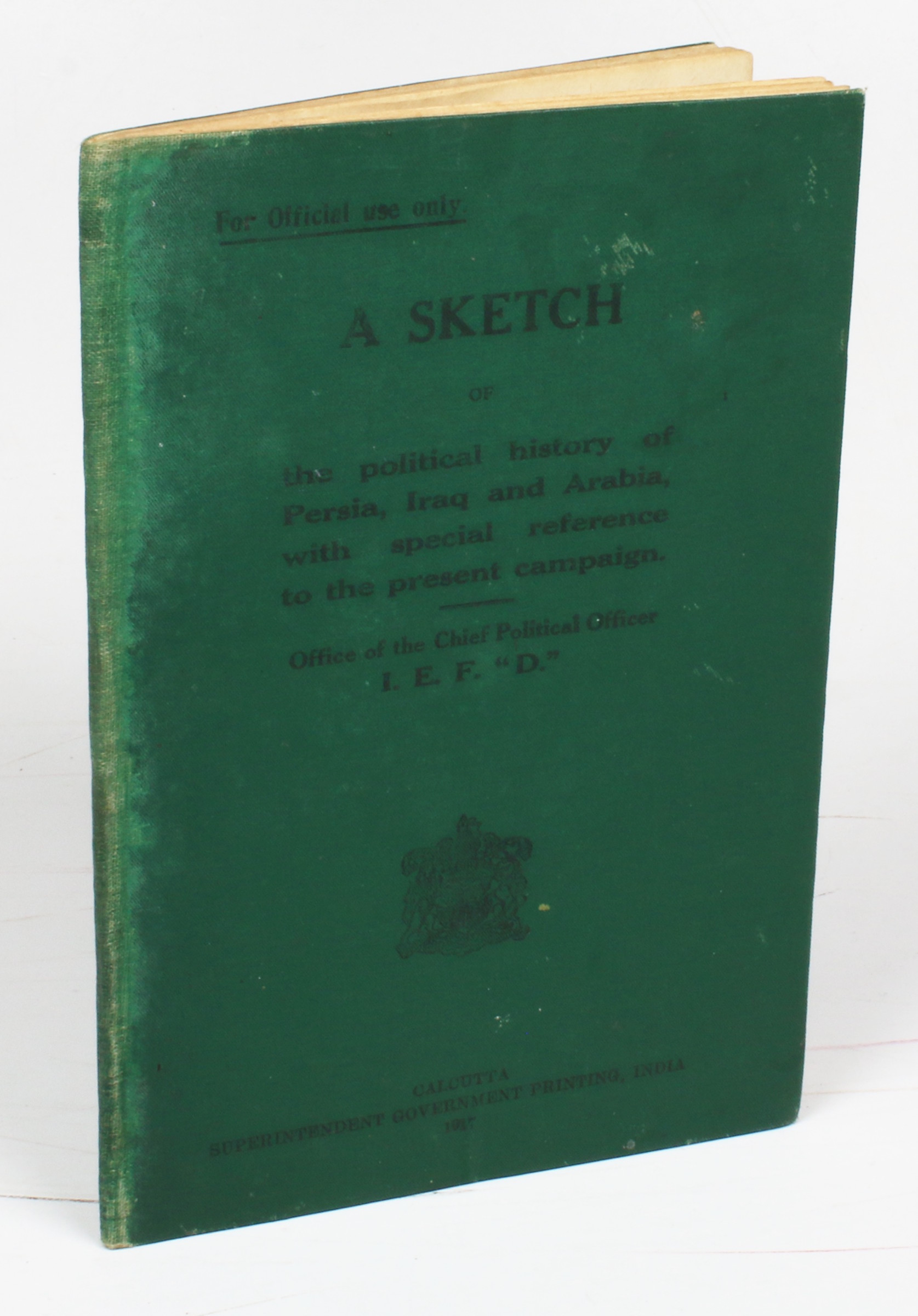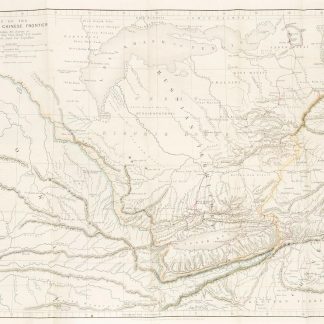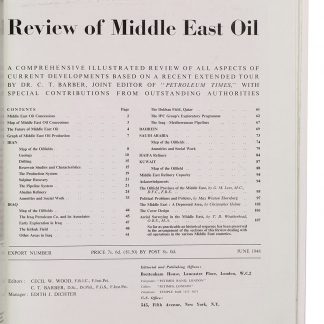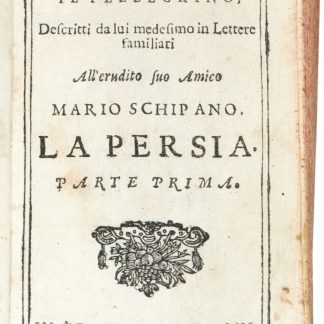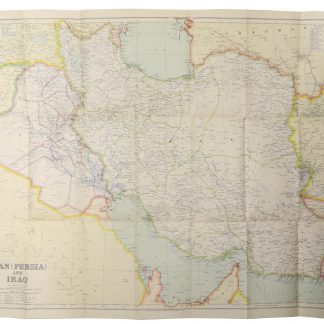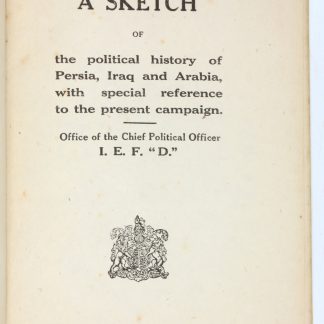Military pamphlet on British interests in Iraq and the Arabian Gulf
A Sketch of the Political History of Persia, Iraq and Arabia, With Special Reference to the Present Campaign.
Small 8vo. (6), 43, (1) pp. Stiff green cloth wrappers titled in black.
€ 9,500.00
Extremely rare manual, marked "For Official use only" and prepared for the troops of the Indian Expeditionary Force "D", giving an account of the political and historical context of the British Mesopotamian campaign of World War I.
Expeditionary Force "D" was made up of Indian and British troops and is infamous for its doomed defense of the siege of Kut, where disease and starvation forced a surrender in April 1916. However, the pamphlet does not limit itself to Iraq, but crucially provides an entire chapter on the history of, and British interest in, the Arabian Peninsula, titled "Arabia - Our Left Flank", including an entire section on Abdulaziz Ibn Saud (1875-1953). The author summarizes the history of British presence in the Gulf, noting the sack of Ras-al-Khaimah in retribution for alleged pirate activity, after which "the climate forced [the British] to evacuate that position". The book further refers to the "maritime truce" imposed by Britain upon the Arabian Coast from "Masandam to Kuwait" in 1836 and notes that the suppression of the arms trade in Muscat was successful thanks to the regulations put in place by Faisal bin Turki, Sultan of Muscat and Oman (1864-1913), the direct ancestor of Sultan Haitham. In more general terms the author describes "The rich oases of the Qasim, with their population of enterprizing merchants" and "the Hasa, coveted for its date groves and its ports on the Persian Gulf" which "was finally wrested from the Ottoman Government by Ibn Sa'ud in 1913". The author lists British treaties along the Gulf Coast, including with "the Shaikh of Bahrain" (Abdullah bin Ahmad Al Khalifa, 1769-1849) in 1820 "and in 1798 with the chiefs of the Trucial Coast".
Cloth gently rubbed. Interior shows a hint of foxing, otherwise in very good condition. A single copy is listed in auction records, and that volume included a pencil note attributing authorship to Sir Arnold Talbot Wilson (1884-1940), a captain in the British Indian Army. As then-acting civil commissioner for Mesopotamia who later became known for his strong opinions on the postwar fate of Iraq, he is not an unlikely candidate.



